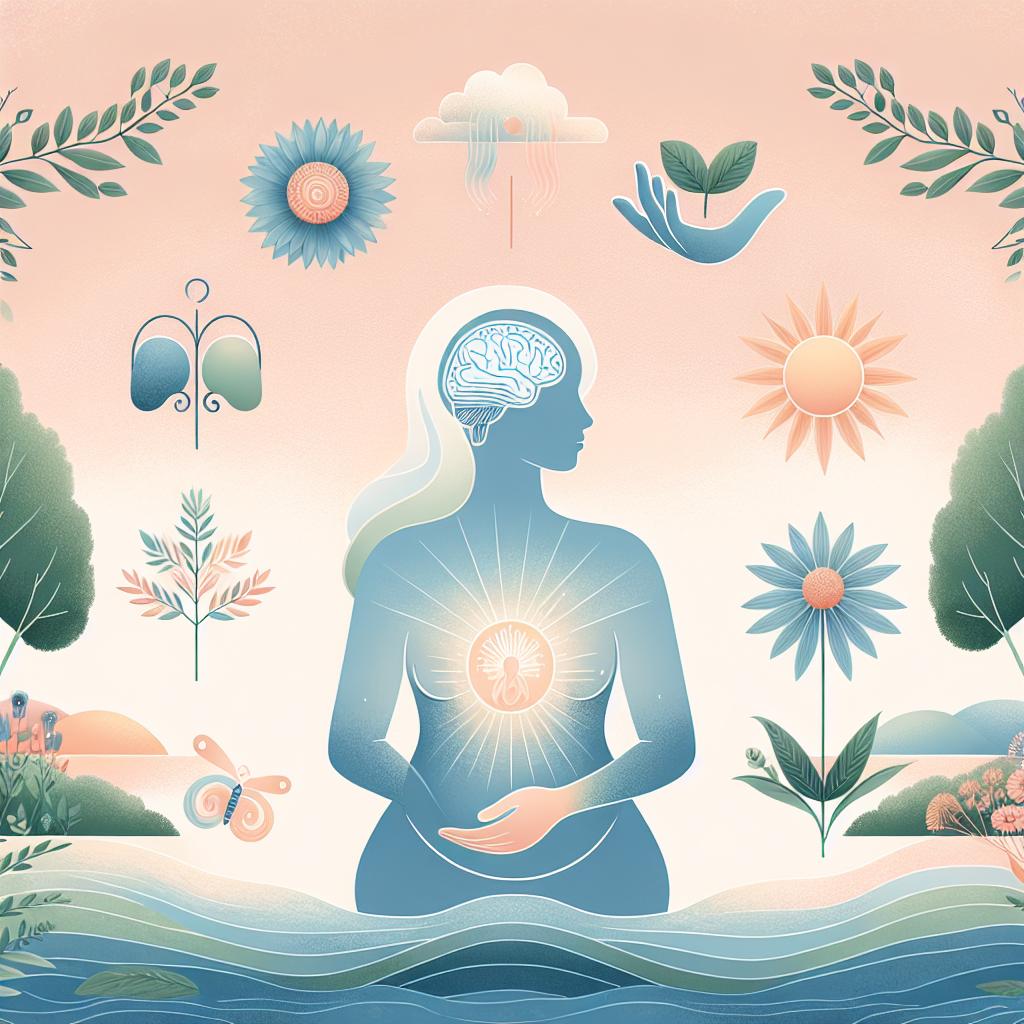The Importance of Postpartum Self-Care
The birth of a baby, while a joyous celebration, also marks the beginning of a physically draining and emotionally taxing journey for the new mother. In the midst of caring for the newborn, it’s easy for mothers to neglect their own well-being. Prioritizing postpartum self-care is crucial for a healthy physical recovery and maintaining good mental health.
Physical Recovery Tips
The physical body undergoes enormous changes during and after pregnancy. Here are a few tips to expedite recovery:
- Eat nutritious food: Nutritional food replenishes the body’s energy and aids recovery.
- Stay hydrated: Drinking plenty of water facilitates the production of breast milk and also reduces postpartum swelling.
- Rest: While it may be challenging with a newborn, sleeping whenever possible promotes healing.
- Exercise: Light exercises such as walking can help regain strength and boost mood.
Remember to consult your healthcare provider before starting any exercise regimen.
Mental Health Tips
In addition to physical recovery, postpartum self-care includes looking after your mental well-being. Many new mothers experience mood swings, feelings of anxiousness, and even postpartum depression. Below are few important mental health tips every new mother should consider:
- Ask for help: It’s okay to seek help from your partner, family, friends, or professional services.
- Practice mindfulness and relaxation techniques: Breathing exercises, yoga, and other mindfulness practices can help manage stress.
- Join a support group: Connecting with other new mothers can provide immense relief and support.
- Spend time on your hobbies: Engage in activities that you love. It helps to maintain a balance and keep anxiety and stress at bay.
Support for New Mothers
Needing help is not a sign of weakness, but rather an acknowledgement of the massive life change that motherhood brings. Reach out to your family, friends and healthcare providers. A good support system can provide emotional comfort, practical help, and valuable advice. You can also explore resources and information online to help you navigate postpartum self-care.
Prioritizing Postpartum Self-Care
Remember, your well-being is important, not just for your baby, but for you too. Prioritizing postpartum self-care not only aids physical recovery, but contributes to overall mental health. Listen to your body, be gentle with yourself, and seek the support you need. Motherhood is a beautiful journey, and taking care of yourself is the first step towards enjoying it to the fullest.
Understanding Postpartum Depression
One critical aspect of postpartum self-care focuses on mental health, specifically the serious condition of postpartum depression. Postpartum depression (PDD) is a significant depressive episode that arises within weeks to months after childbirth, miscarriage, or abortion. It’s important to be knowledgeable about the symptoms of PPD, which can vary widely but include mood swings, anxiety, sadness, irritability, feeling overwhelmed, reducing eating, problems sleeping and reduced concentration.
Referring to resources such as the Better Health Channel can help new mothers understand and identify the signs of PPD better. Remember that PPD is a severe condition and it’s key to get medical help if these symptoms are affecting your ability to care for yourself or your baby.
Postpartum Care Check-Up
According to the American College of Obstetricians and Gynecologists (ACOG), a postpartum care visit should include a full assessment of physical, social, and psychological wellbeing. Furthermore, it’s recommended that postpartum care be an ongoing process rather than just a single postbirth checkup. New mothers should optimally have contact with their care providers within the first 3 weeks postpartum and have a comprehensive visit no later than twelve weeks after birth.
Coping with Postpartum Anxiety
While Postpartum Depression is a more widely-known condition, Postpartum Anxiety can also significantly affect a new mother’s mental health. Symptoms include constant worry, racing thoughts, disturbances of sleep and diet, and an overwhelming fear that something bad is going to happen to the baby.
Transitions Counseling Inc has valuable resources that can aid in coping with postpartum anxiety. Practicing self-care and seeking support from trusted individuals in your life can help manage these feelings of anxiety.
Invest in Lifelong Mental Health
Understanding that mental health is as critical as physical health and taking steps to promote mental wellness is a lifelong investment for every mother. Prevention and early intervention can help ward off serious mental health issues like perinatal depression, which can have long-term negative effects on the mother and child’s health, as outlined by the National Institute of Mental Health. Prioritizing mental health is prioritizing the overall well-being of both mother and child.
Remember, You Are Not Alone
Every mother’s experience is unique, but you are not alone in this journey. Reach out for help when you need it and take care of your needs. Make certain to attend to your physical and mental health needs as they are vital for the well-being of your baby and yourself. Remember, being a good mother also includes taking good care of yourself!
